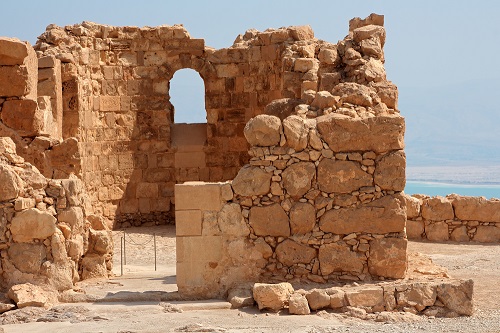Israel is becoming increasingly popular as an expat destination, despite having the highest cost of living in the Middle East. In a 2019 survey, run by InterNations, Israel ranked as the 14th most attractive country to live and work in out of 64 destinations.One of the more difficult obstacles you will face when relocating to Israel is the language barrier. A lot of websites and documents will be written in Hebrew, and many people will prefer to communicate in this way. It is advised that you have all documents double checked by a Hebrew speaker, and that you use an online translator to generate Hebrew phrases for search engines, so that you are not limited to English information and listings.
If you are able to navigate Hebrew listings, you are likely to find better deals, and you are less likely to fall victim to foreigner-targeted scams. Whether renting or buying, you can begin your property search online at sites such as Menivim, BPII, Yad2, WinWin, Remax, Madas, Baboo, Green Acres and Homeless.
Renting property in Israel
Renting in Israel is quite pricey, with bustling Tel Aviv the most expensive city in the Middle East. A one-bedroom apartment in the city centre costs on average 5,092 Israeli shekels (c. USD $1,450) a month, compared to a countrywide city centre average of 3,691 shekels (c. USD $1,050). Haifa is typically much cheaper, with an apartment there costing an average of 2,230 shekels (c. USD $633) per month. In Jerusalem, the average price for rent is 3,850 shekels (c. USD $1093) per month.
While you can find some furnished rental properties in Israel, they are typically let unfurnished. Therefore, you may need to supply air conditioning units, wardrobes, lighting fixtures, white goods and kitchen appliances.

When you have found the right property, it is important to get assistance from a Hebrew speaker when negotiating the clauses in your contract. Tenancies in Israel are typically a year long, but you can negotiate. The contract should include how long a notice period you would need to give should you wish to vacate early. It is wise to include an “option to renew” in your contract, to define that the tenant alone has the option to renew and that, should you wish to renew, your rent cannot be increased.
Security deposits in Israel are limited to either one third of the total rent for the length of the tenancy, or three months’ rent, whichever is less. The deposit should be held by a lawyer and not by the landlord, and if you pay the deposit by personal cheque, you should get confirmation in writing that the sum is for the security deposit and should not be used for anything else.
An important cultural point to bear in mind is that many landlords will only lease their properties to tenants who observe Shabbat and will maintain a kosher kitchen. Also, be aware that rent and letting fees are likely to be charged in shekels, so you will need to account for exchange rates from your home currency. You will likely benefit from opening an Israeli bank account.
Buying property in Israel
If you are looking to buy property in Israel, then you will be at a disadvantage if you cannot read or speak Hebrew. It is recommended that you engage a lawyer early in the purchase process, or at least ensure you have assistance from someone who speaks the language.
In Israel, it is customary to use an estate agent to find properties for sale and to assist throughout the buying process. Bear in mind that the agent will take a fee, usually 1.5% to 2% of the property value, plus VAT.
As an expat, you will only be able to get a 50% mortgage, so you will be required to pay 50% of the house price upfront. You can increase the mortgage to 60% by obtaining EMI (mortgage insurance from Ezer Mortgage Insurance Company). If you are a Jewish immigrant (“olim”), you are automatically considered an Israeli citizen, and you can therefore apply for a mortgage of up to 85% if you get EMI. Olim are also entitled to a lower rate of purchase tax within seven years of making Aliyah (returning to Israel from the diaspora).
The bank will request your tax returns and credit history reports when you apply. Home insurance is required to obtain a mortgage, but it depends on the bank whether this needs to be in place before finalising the mortgage contract.
The bank will usually request an official valuation of the property, which you will need to arrange with one of their approved valuers. A more thorough property inspection or survey is not required, but is recommended for any pre-owned property. The bank will issue you with a pre-approval confirmation, known as an Ishur Ekroni. This document is valid for three months, and the interest rates will remain fixed for 12 days.
You can also use the Ishur Ekroni to negotiate with other banks. You should aim to obtain it as close to having your offer approved and signing the contracts as possible, so that it does not expire. The deal will be in shekels, so you should factor in fluctuating exchange rates.

When the seller accepts your offer, they or the agent may want you to sign a Memorandum of Understanding, the Zichron Devarim. This is usually no longer than one page long and includes the basic details of the sale. Many lawyers advise against signing this, as it can be considered a binding contract, but without enough detail or specificity to protect you. Ensure that you have engaged a lawyer at this part of the process, and get their advice before signing a Zichron Devarim.
Your lawyers should then exchange and approve contracts. Once these are signed, a He’arat Azhara caution notice must be added to the deed (Tabu). This notice, registered at the Land Registry Office, details your rights to the property and prevents the seller from re-selling to another party. You can now provide the signed contract, the amended deed and seller approval to the bank and open a file to obtain the agreed mortgage.
Your lawyer will then register the property and transfer the deed. Once finalised, they will remove the He’arat Azhara, and the Tabu will reflect your ownership of the property.
There is a lot to navigate when moving to Israel, and you may experience a culture shock. Consider a short-term let when you first arrive, so that you can get your bearings. As long as you keep your wits about you, you should be able to find the right place for you.

